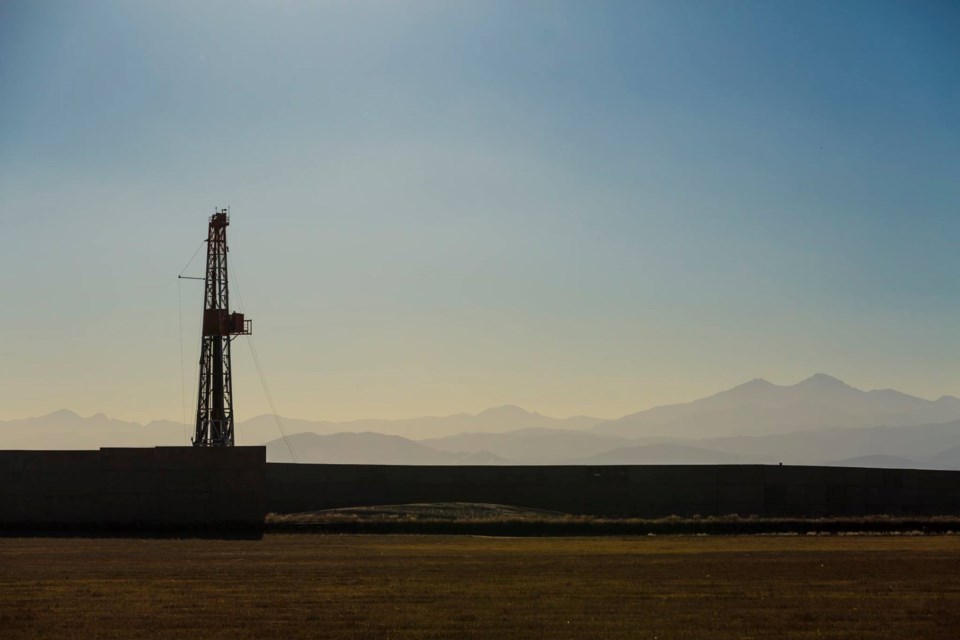Fracking of oil and gas wells near Longmont’s city limits will continue but at least the community will make more money in royalties from leases from those operations, Mayor Joan Peck said Thursday.
Peck praised an amendment recently made to existing oil and gas agreements with oil and gas companies TOP Operating and Cub Creek Energy that benefits the city financially while still keeping oil and gas drilling out of the city. One key element of the amendment gives additional revenue to the city over the life of Cub Creek’s Knight wells — located just north of Union Reservoir — of an estimated $4.78 million over the 20-year life of the wells, according to city officials.
The amendment received preliminary approval from the city council this week and will get a public hearing on Oct. 25. Peck said the amendment was the result of a year’s worth of negotiations between the oil companies and city officials. Those included retired deputy city manager Dale Rademacher who was brought to the table because of his oil and gas experience, Peck said.
“It’s a good deal for Longmont,” Peck said. “It’s not optimal because fracking will continue. But they did the best job they could and there will be no more wells in Longmont.”
In 2012, the city forged agreements that resulted in the consolidation of potentially hundreds of well sites to 11 consolidated sites, according to a city staff report. A new agreement in 2018 resulted in the elimination of all 11 of the consolidated drill sites in the city.
The agreement also barred TOP Operating and Cub Creek from all future surface oil and gas operations within city limits, the staff report states. The city also agreed to lease an additional 516 acres of its mineral rights to Cub Creek. In exchange for TOP Operating’s commitment to relinquish all of its current and future rights for oil and gas development in the city, the city agreed to pay TOP Operating $3 million, the city said.
Cub Creek proceeded to drill and complete wells at two locations outside of Longmont, called the Olander and Knight pads. TOP Operating also moved to plug and abandon all of their existing wells with city limits, according to the city.
A city staff report states that the pivotal elements to the agreement between the city and the oil companies are:
- The elimination of the city’s obligation to pay $3 million to TOP Operating.
- The replacement of existing leases for the city’s Upper Adrian, Eckel, and Kolby mineral rights with new leases which will increase royalty rates to 20% and include prevailing, modern terms and conditions to better protect city resources.
- The amendment of the Koester and Upper Shores lease agreements to extend the term of the leases, consistent with the city’s charter, to 30 years ending in 2042 and an increase of the royalty rate paid to the city from 16% to 17%
- Each of the leases continues to prohibit any surface activities on properties owned by, or located within, the city.
- The ratification of the city’s Stamp mineral lease.
- A new agreement with TOP Operating, in accordance with state rules, regarding the topsoil protection and reclamation of city-owned properties immediately in the vicinity of plugged and abandoned oil and gas wells.
- An extension of the term of the Access Road Revocable Permit and Agreement grant to Cub Creek, consistent with the city charter to 30 years ending in 2048.
- The estimated additional revenue to the city in 2022 is $3.53 million and over the life of the Knight wells is $4.78 million.
Longmont will also continue one of the state’s “most stringent and comprehensive environmental monitoring programs … that includes all existing oil and gas operations both within the city and near the city, according to the staff report.
The city continues water quality testing in the vicinity of existing wells as well as Union Reservoir, the staff report states.
“A lot of cities are wondering how Longmont has done this, keeping oil and gas wells outside of the city,” Peck said. “There has been a lot of hard work and dedication involved.”



